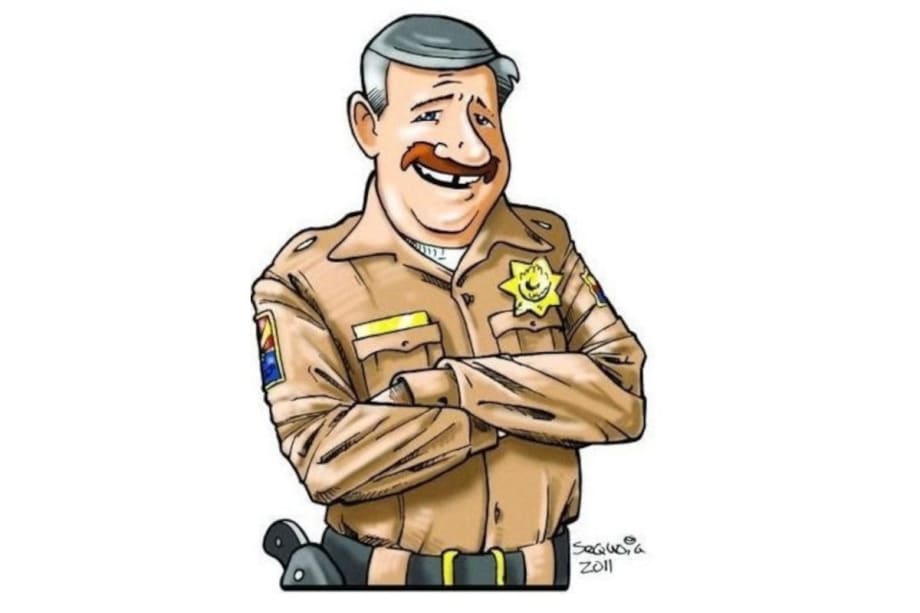Every time the crime rate is low, we tend to stop talking about the root causes of crime and the means to its prevention. Politicians extol this or that social program and take credit for the positive trend, and they generally stop paying attention to issues that were of supreme importance during previous high crime times.
Only as the pendulum begins to swing the wrong way do the powers that be seem interested again, and more often than not they seek to gain some political or social advantage by blaming rather than fixing.
We are now in the high crime rate portion of the pendulum’s arc, and we are experiencing the expected political shift to old theories newly rendered.
In my college days the dominant criminology books and professors tended to favor one theory or a combination of theories that we might consider traditional or even classical in their analysis of the causes and prevention of crime. Noted authors offered theories that seemed to provide solutions that matched our traditional ideas about how individuals chose to commit a crime and what measures a free society might employ to limit or even abolish that deviant behavior.
The key assumption in the vast majority of studies considered the “community” to be a group of individuals who feared criminals and were the victims of crime. Such brilliant studies as “Broken Windows” led to key changes, not only in policing, but in communities at large to reduce crime and improve the perceived quality of life in those areas. Successful studies and follow up programs led to years of reduced crime and safer cities.
Unfortunately, one of the theories I had mocked in class as wrong has come back powerfully and devastatingly in the last few years. I had one professor who was madly in love with what is known as “the Marxist or Social Conflict School of Criminology.”
In my college days (early 1970s) the concept of class struggle was in full swing and everything was “haves and have nots” and “lower-, middle- and upper-class conflict” and “Capitalism bad, Socialism good!” Things have not changed that much, except that some of the key terms have been altered to fit the current climate of racial conflict.
Marxist theory focused on class, feminist theory on sex; the names change but the essence of the theory remains the same. They teach that social forces create conflict, punishment, and reward, based on the values of the corrupt power structure. The fall of the Soviet Union, along with the high crime rate in communist countries contrasted with capitalist countries, led to a necessary evolution of the principal arguments that shifted the focus to race instead of class.
I know you criminology majors are saying, “Boy, Smith, you are sure simplifying a complex subject!” Yeppers! I have 800 words to explain my thoughts on one of today’s toughest issues, so forgive my generalities.
Ultimately, the social conflict school spread from criminology to law school and the deep problems I had with the theory became a problem in reality and not just in concept. The greatest flaw in the theory is that the idea of “individual accountability” is reduced to “individual in rebellion against an unjust system.” The victim of the crime is sidelined, and once a prosecutor is established with this philosophical foundation the offender becomes an almost romantic rebel struggling against an unjust system.
“Progressive” prosecutor Kim Foxx in Cook County (Chicago) dropped charges against 29.9% of felony defendants during her first three years in office, including cases involving murder, shootings, sex crimes, and serious drug offenses. Foxx has a 35% higher dismissal rate than any of her predecessors, all while the city of Chicago experiences unprecedented levels of violent crime day after day.
For the social conflict theorists, mythical social structures called “institutional racism” and “whiteness” become supreme villains, which the gallant revolutionary must combat at the level of the street, and those that prey upon the innocent become society’s heroes.
It is more than past time for us to return to a classical understanding of crime, and deal with it as a transgression of an individual against the community. We need to make the real victims matter again, and stigmatize criminal behavior.
Romanticizing criminality and demonizing law enforcement has been a dismal failure; and worse, it has extended to every nook and cranny of our social fiber, sharply dividing our nation at a critical time. Certainty of punishment, proactive policing, reducing the power of gangs in our society, should all be goals of the criminal justice system, not regarding criminals as freedom fighters.
Let’s care for victims and cheer crime fighters again.













